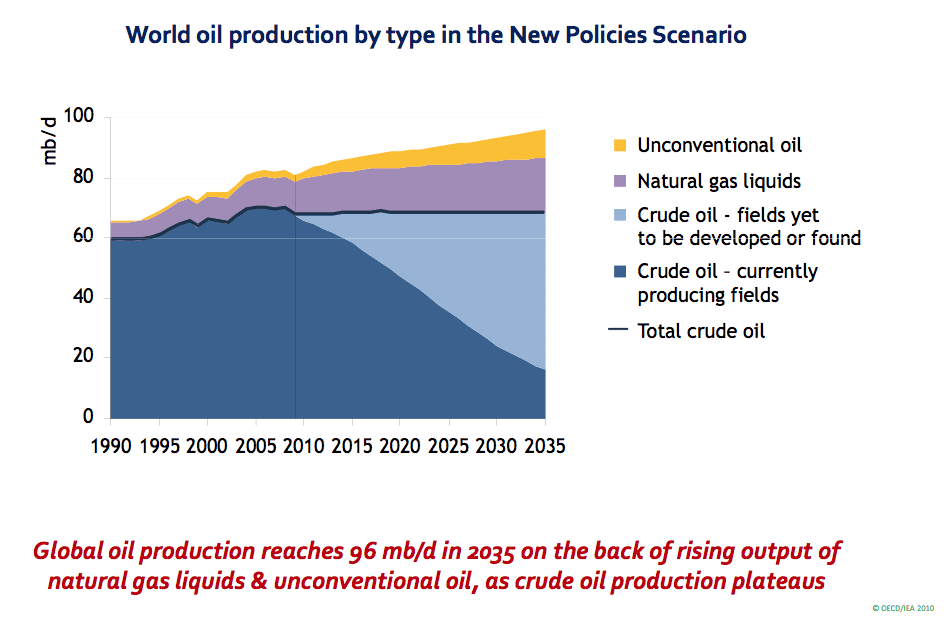Ah, let's see now. I thought I'd heard several rumours over the years *cough* that we were running out of fossil fuels. Well according to the experts.....
Did anyone else hear those rumours? Cause guess what?
Gas glut threatens investment in renewables sector, IEA warns• Liquefied gas capacity will shoot up 47% by the end of 2013
• Shell and Exxon-Mobil are repositioning as gas producers
from the article:
The world faces a long term gas glut because of recent technical advances which have made possible the exploitation of previously untapped shale gas, coal bed methane and tight gas deposits, mostly in the US, China and Australia.
The IEA, publishing its annual world energy outlook now estimates that 35% of the increase in global gas production to 2035 will come from such unconventional projects.
Last year it estimated that unconventional gas production would account for 20% of the growth, although this covered the period 2007 – 2030. Gas is also the only fossil fuel for which it expects demand to grow by 2035.
I love days like this.

It's not the end of the world after all.
Gas glut threatens investment in renewables sector, IEA warns | Business | The Guardian
And, in typical con man "nothing to see here" logic, you miss the overall and undeniable situation here by blindly clinging to any mastubatory angle you can find. You're like a football team that's losing 38-0, but unable to take your eyes off the jumbo-tron for that 10-yard gain you just picked up.
Try actually reading the actual
IEA outlook itself, rather than the Guardian's rosey spin of what constitutes "glut," ok there Capt. Arrogance?
From the actual report, here is the IEA's outlook of world fuel production going forward, and the only assessment from the global energy watchdog that matters:
You see that violet, relatively FLAT wedge? There's your gas "glut." You see that light blue, ever-expanding wedge? There's your as-yet unknown quantity needed in order to make up for dying existing capacity going forward. Sorry, but gas isn't saving industrial nations from anything.
The IEA uses fluffy language to keep global markets calm, but in their 2010 annual update, the energy watchdog reveals it's latest thinly-veiled red flag.
((if you need the cliffnotes because you can't deal, very well... it goes something like this:
"Despite our own data, and despite what our own former chief Fatih Birol says over and over again, we don't believe in peak oil. ... That being said, if vital investment and global consensus is actually met in order to cover our as-yet unknown capacity [again, the light blue wedge above], industrial nations might be relatively fine for 30 years. ... If it's not met -- and we don't really know how it WILL be met -- and the capital and initiative is not there, we're quite f*cked... and very soon.))
IEA World Energy Outlook 2010 Now Out; a Preliminary Look
Posted by Gail the Actuary on November 9, 2010 - 10:40am
Topic: Supply/Production
The International Energy Agency issued its annual energy forecast today for 2010. It consists of a three volume report, plus an executive summary and a press release. The website can be found here.
In the next few weeks, we will be analyzing the report. At this point, we can only point to a few of the summary findings. One clear concern is that demand will be rising--especially from China and India. Another is that prices (in inflation-adjusted terms) will be rising. A third concern is that conventional oil production will no longer be able to rise.
The above scenario (the embedded image) shows conventional crude oil on a plateau to 2035 at a level below recent production. This graph is from the "New Policies" scenario, so reflects some cutback in demand as a result of governmental policies from what the reference scenario would assume.
...
From the report, itself:
The size of ultimately recoverable resources of both conventional and unconventional oil is a major source of uncertainty for the long‐term outlook for world oil production.
But if governments do nothing or little more than at present, then demand will continue to increase, supply costs will rise, the economic burden of oil use will grow, vulnerability to supply disruptions will increase and the global environment will suffer serious damage.
You should really be careful presenting information you obviously don't understand. Often, it winds up countering your own dumb, hope-based platform.
Thread fail, x 1000It's not the end of the world after all.
